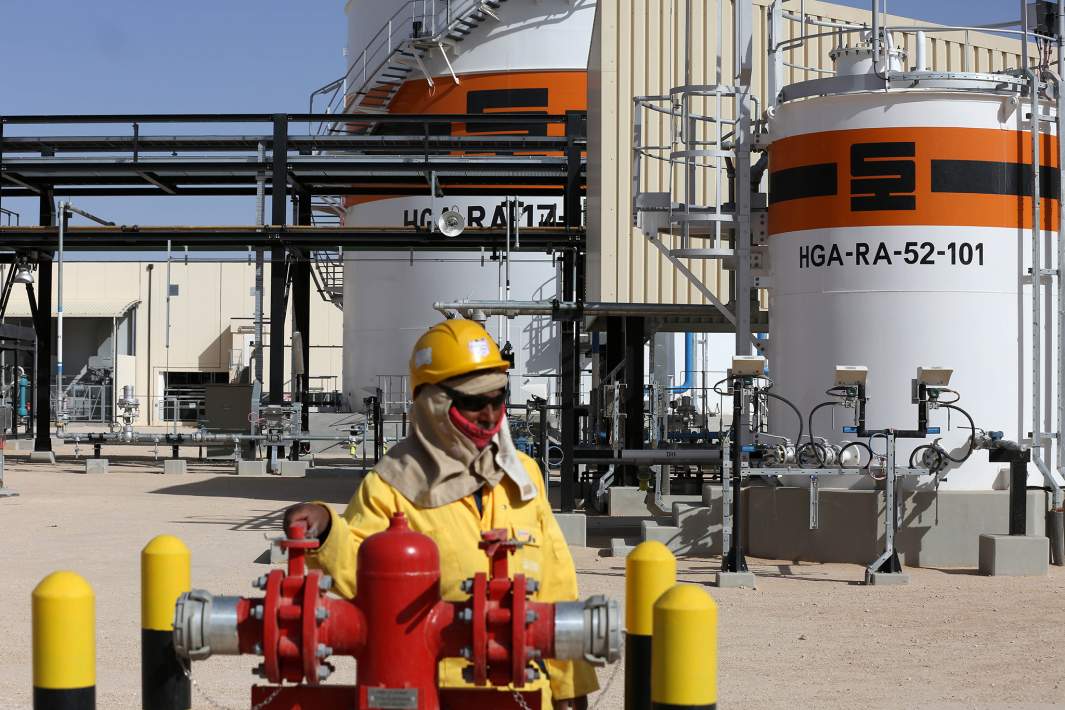
The head of Saudi Aramco: the green transition has failed and the planet should forget about plans to abandon oil
The CEO of Saudi Aramco, Amin Nasser, has called for a change in the strategy of transitioning from fossil fuels to renewable energy sources, commonly known as the 'green' transition. Nasser believes that the current strategy has failed and proposes to abandon the idea of replacing oil and gas with 'clean' fuels, which he considers a 'fantasy'. Instead, he suggests focusing on reducing harmful emissions into the atmosphere. Amin Nasser believes that the demand for fossil fuels will continue to grow in the coming years, which he sees as proof of the correctness of his point of view.
According to CNBC, Nasser stated at the CERAWeek International Energy Conference, hosted by S&P Global in Houston, Texas from March 18 to 24, that the current transition strategy is not working on many fronts due to five hard realities. The head of Aramco proposed a change in the transition strategy, suggesting that instead of abandoning the use of oil and gas, we should invest in them while taking into account the existing demand.
The head of Aramco proposed a change in the transition strategy, suggesting that instead of abandoning the use of oil and gas, we should invest in them while taking into account the existing demand. The audience applauded this speech, which was reported by CNBC.
According to the International Energy Agency's (IEA) forecast from last year, the demand for oil, gas, and coal will peak by 2030. However, Nasser suggests that a peak in demand should not be expected in the near future. He recommends that the IEA focus on demand in the US, Europe, and the developing world. Despite $9.5 trillion of investment in alternative energy sources over the past two decades, Nasser believes they have not been able to replace fossil fuels on a large enough scale. Currently, solar and wind energy account for less than 4% of the global energy balance, while electric vehicles make up less than 3% of the global vehicle fleet. In contrast, the share of hydrocarbons in the global energy balance only slightly decreased from 83% to 80% in the 21st century. Despite this, global demand for oil equivalent increased by 100 million b/d during this time and is expected to set a new record this year. The growth of gas has been 70% over the past two decades.
Amin Nasser emphasized that the picture of the future that some painted cannot be considered accurate. Even those who previously did not recognize the importance of oil and gas are beginning to do so.
The demand for oil and gas is expected to rise in developing countries in the global south due to their steadily rising living standards. Over 85% of the world's population resides in urban areas, yet less than 5% of renewable energy development investments are allocated to these areas.
Amin Nasser emphasises the need to focus on reducing emissions from burning oil and gas, in addition to transitioning to renewable energy sources, by allocating more attention, effort, and resources. The head of Aramco cited an interesting figure: new technologies and increased efficiency have reduced global energy demand by almost 90 million barrels per day of oil equivalent over the past 15 years. In contrast, solar and wind energy only reduced demand by 15 million barrels during the same period.
Amin Nasser concluded his speech logically. “New energy sources and technologies should only be introduced when they are economically competitive and have the necessary infrastructure.”
